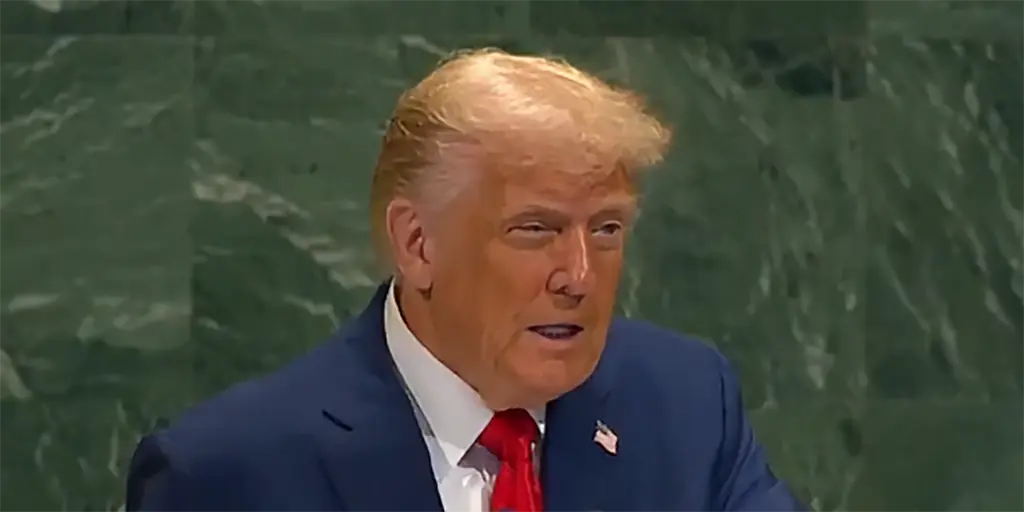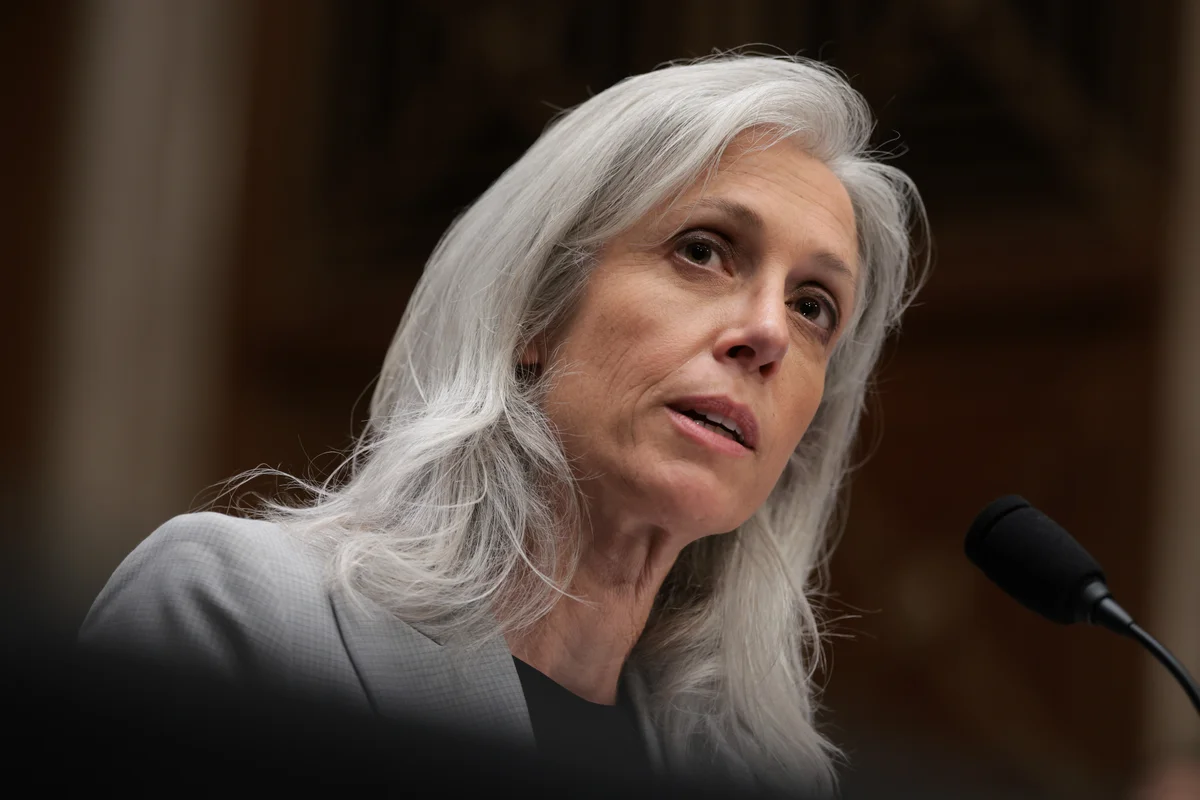
From Legal Insurrection
President Trump called climate change the “greatest con job ever perpetrated on the world” at the UN.
Posted by Leslie Eastman
When President Trump took office for his second term, it was clear from the moment he started signing executive orders in the Oval Office that he had every intention of implementing his plans to reverse the Obama-Biden climate crisis agenda. Ending U.S. Participation in the Paris Climate Accord was a clear signal that he would double down on his agenda.
Trump then selected Chris Wright, the head of a fracking company, to head the Department of Energy (DOE). His team continued with the defunding of the Biden “Green New Deal” and the attempt to claw back funds that were distributed to eco-activists like “gold bars thrown from the Titanic“. The administration continued to halt wind farm projects, moved to rescind the destructive “endangerment finding” that essentially classified life-essential carbon dioxide as a pollutant, and prepared a far more reasonable national climate assessment that included more rational risk assessments and economic impact considerations.
In other words, Trump and his team have proceeded to make significant progress on the strategic destruction of the economically disastrous climate crisis agenda.
Green activist groups are now experiencing deep frustration, a sense of failure, and internal turmoil as their funding and agendas have been targeted by the executive branch…just as Trump promised during his campaign.
The movement is struggling with lower fundraising, membership challenges, staff layoffs, and internal divisions, differing from the first Trump term that saw surges of resistance-driven support.
Some groups, such as 350.org and Greenpeace USA, openly acknowledge that their previous strategies are failing, signaling a need for tactical reinvention as traditional methods of mass protest and lobbying have not yielded results in the current hostile political climate.
Unlike during Trump’s first term, when groups like the Sierra Club saw their membership and donations swell in resistance to the president, the green movement has struggled this year to generate a cohesive message. Some also face additional problems of their own: The 3.8-million-member Sierra Club, for example, fired its former executive director in August after years of internal feuding and multiple layoffs.
“A lot of climate groups weren’t up for round two of doing the same thing” they did during Trump’s first term, such as focusing on large, Washington-centric demonstrations, said Jamie Henn, founder and leader of the climate activist group Fossil Free Media. “I think it’s taken a while to figure out. People, admittedly, were in shock about what’s happening.”
“Now I think people realize we’ve got to buckle down and get ready for the long haul,” he added.
I would argue that part of the problem is that the COVID pandemic made people aware of how many scientific “experts” were simply narrative pushers. Climate change science is not more than pseudoscience, but on a much longer timescale than COVID. Americans are now unafraid of the hysteria the green activists and their media minions are trying to promote.
The response to Politico’s X-post grieving about this development underscores the fact that most people are done with the climate antics.
However, it is not just the U.S. that is moving away from global climate politics. Anthony Watts of the Watts Up With That blog reviews a very fascinating piece recently published in The New York Times, which concludes the age of the Paris Climate Accord is over.
…America is not the only player abandoning climate pieties. Canada’s new prime minister, Mark Carney—once the high priest of climate finance—made his first act in office the repeal of Canada’s carbon tax, and he was rewarded with a landslide victory. Mexico’s president, Claudia Sheinbaum, a climate scientist by training, now boasts about her nation’s booming oil and gas industry while enjoying one of the highest approval ratings of any world leader. Europe, once the vanguard of green virtue, is retreating as well. Laws once touted as proof of planetary salvation are being weakened, watered down, or repealed under pressure from populist coalitions and economic reality.
The mood has shifted so dramatically that Jason Bordoff, a former Obama energy adviser and now head of Columbia University’s Center on Global Energy Policy, admits: “You can’t walk more than two feet at any global conference today without ‘pragmatism’ and ‘realism’ being thrown around as the order of the day. … But it’s not clear to me that anyone knows what those words mean other than this whole climate thing is just too hard”.
To cap off this day of climate victories, I would like to conclude with Trump’s assessment of the entirety of the climate crisis agenda.
President Donald Trump dismissed climate change as “the greatest con job” in the world during his address to the United Nations General Assembly on Tuesday, doubling down on his skepticism of global environmental initiatives and multilateral institutions.



